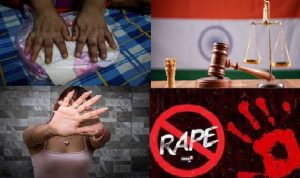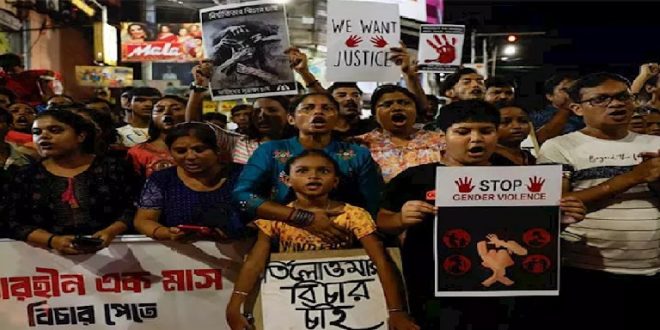29-09-2024
Bureau Report + Agencies
NEW DELHI/ AJMER/ KOLKATA: The Indian government has slashed its goal to create thousands of new tribunals to try sex crimes speedily after states like West Bengal, where the recent brutal rape-homicide of a doctor shook the nation, fell far short of targets, according to three federal government officials and an internal document seen by Reuters.
 Prime Minister Narendra Modi’s government moved to establish fast-track special courts (FTSC) in 2019 to try exclusively sex crimes, after the Supreme Court that year criticized state governments for being slow to deliver justice to victims. The court singled out Bengal and Uttar Pradesh for taking too long to reach judgment on cases involving child victims.
Prime Minister Narendra Modi’s government moved to establish fast-track special courts (FTSC) in 2019 to try exclusively sex crimes, after the Supreme Court that year criticized state governments for being slow to deliver justice to victims. The court singled out Bengal and Uttar Pradesh for taking too long to reach judgment on cases involving child victims.
Most sex crimes are tried by India’s heavily burdened state courts, but Modi’s government planned to incentivize state governments to establish 1,023 FTSCs by March 2021 by funding 60% of costs. Each FTSC is staffed by one judicial officer and seven support staff.
The government had projected 2,600 FTSCs by 2026 but has now revised its target to 790 due to low interest from states and a lack of judges, according to the officials and the document, an undated summary from this year of progress on the FTSC project. Just 752 FTSCs have been established nationwide as of August, according to publicly available government data.
Some states were slow to sign up to the project, with Bengal only joining last year. The opposition-led state – whose chief minister Mamata Banerjee is under scrutiny for her handling of sex crimes was earlier set a target of 123 fast-track tribunals by March 2021, according to the officials and the document but only six tribunals are operational in Bengal, where there are some 48,600 cases of rape and other sexual offences pending judgement. Details of the federal government’s original target and its decision to scale back sharply are reported by media for the first time.
Top West Bengal judicial bureaucrat Siddhartha Kanjilal blamed the slow response on a lack of judges but said authorities were working with the Calcutta High Court, its top tribunal, on appointing retired officials to FTSCs.
 “There have been delays,” he said. “We, as well as the Calcutta High Court, are seized of the matter.” The Indian law and justice ministry and the office of Banerjee, a vocal critic of Modi, did not respond to requests for comment.
“There have been delays,” he said. “We, as well as the Calcutta High Court, are seized of the matter.” The Indian law and justice ministry and the office of Banerjee, a vocal critic of Modi, did not respond to requests for comment.
Bengal has now been set a goal of 17 special tribunals by 2026, according to the undated government document and a second Aug. 30 summary on the status of FTSCs in that eastern state seen by Reuters.
India’s strained judicial system has a backlog of tens of millions of cases. State courts of first instance are short of about 5,000 judicial officers, roughly 20% of the judges they have been allocated by state authorities, government data show.
In one notable instance of delay, a district court in Ajmer this August sentenced six men to life imprisonment for their role in mass rapes that occurred in the early 1990s.
One of the Ajmer victims, who cannot be named under Indian law, said she was abandoned by her husband after he learned of the assault and the sentence from a traditional court had come way too late for her: “I am of a grandmother’s age now and have no expectations or hope left.”
By contrast, FTSCs focus on specific crimes and can try them speedily. They are also allowed to hire judges on contract, including retired judicial officers.
In 2022, the last year for which comprehensive data is available, FTSCs passed judgement on 83% of cases on the docket. By contrast, Indian courts overall ruled on just 56% of the sex-crime cases taken on that year.
 Pressmediaofindia
Pressmediaofindia




